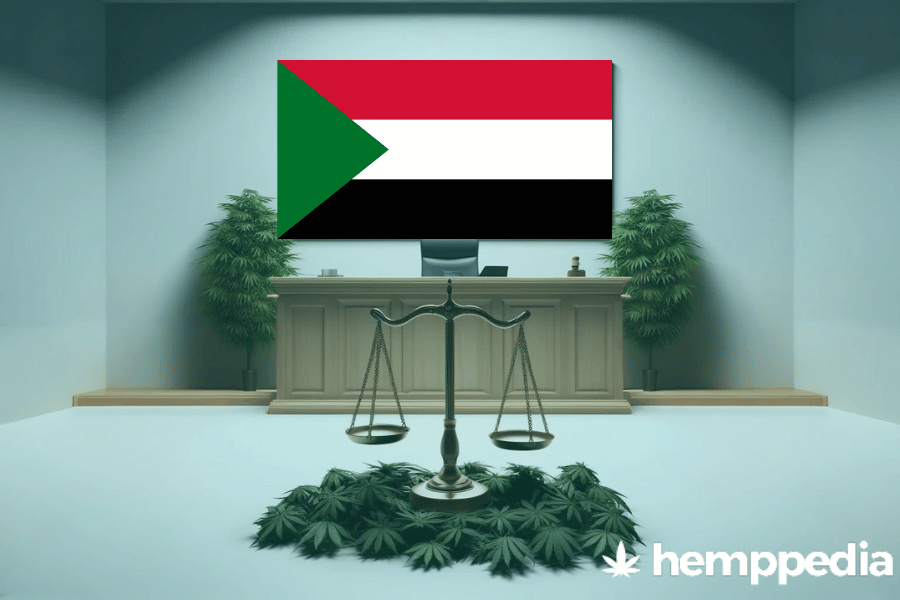TL;DR
Despite global trends towards more liberal stances on cannabis use, in Sudan, the legal status of cannabidiol (CBD), a compound derived from Cannabis Sativa plants, is still very much illegal. This stance extends to both recreational and medicinal use. Possessing, selling, and even using CBD-based products might lead to severe legal penalties.
For a quick glance at the legality of CBD in Sudan, refer to the table below:
| Is it legal? | |
|---|---|
| Possession of CBD | No |
| Use of CBD | No |
| Sale of CBD | No |
| Cultivation of Hemp for CBD production | No |
Overview of CBD Legislation
CBD stands for cannabidiol, a non-psychoactive compound derived from Cannabis plants. THC or Tetrahydrocannabinol, another component of cannabis, is known for its psychoactive effects, unlike CBD. Current global legislation on CBD is varied, with some countries fully legalizing CBD use, and others such as Sudan maintaining stringent laws against it.
Legal Status
Sudanese laws strictly prohibit the use, sale, possession, or cultivation of Cannabis Sativa, rendering CBD illegal in the country. The prohibition includes CBD-based products and hemp, regardless of their THC content.
Regulatory Bodies
The main regulatory body overseeing the enforcement of these drug laws in Sudan is the Anti-Narcotics Police Force.
Conditions and Restrictions
As of the current state, there are no conditions or exceptions allowing for the legal use of CBD products of any kind in Sudan.
Historical Context
Sudan’s stringent stance on CBD and cannabis, in general, has been in place for the better part of the last several decades with no significant legislative changes.
Possession, Use, Cultivation and Sales
All activities involving CBD; including possession, use, sales, or cultivation are illegal under Sudanese law. The import and export of such products are also strictly prohibited. No known certification or labeling requirements apply, as CBD products of all types are deemed illegal across the country.
Enforcement and Penalties
Enforcement of anti-CBD laws in Sudan is strict and transgressions might result in severe legal penalties, typically involving hefty fines and imprisonment, regardless of the intent of usage (recreational or medical).
Comparative Analysis
Compared to an increasing number of countries globally, where legislation around CBD use is relaxing, Sudan maintains a highly conservative stance, with no distinction between CBD and other cannabis products. The current situation of Sudan starkly contrasts with several Western countries and a handful in Africa that have decriminalized or fully legalized CBD use.
Conclusion
Despite global trends towards the acceptance of CBD for medicinal and therapeutic purposes, Sudan continues to follow a strict prohibitionist policy. The legal landscape seems unlikely to change in the near term. As the status of CBD remains illegal in the country, it is crucial for travelers and residents alike to be aware of and adhere to these regulations.





